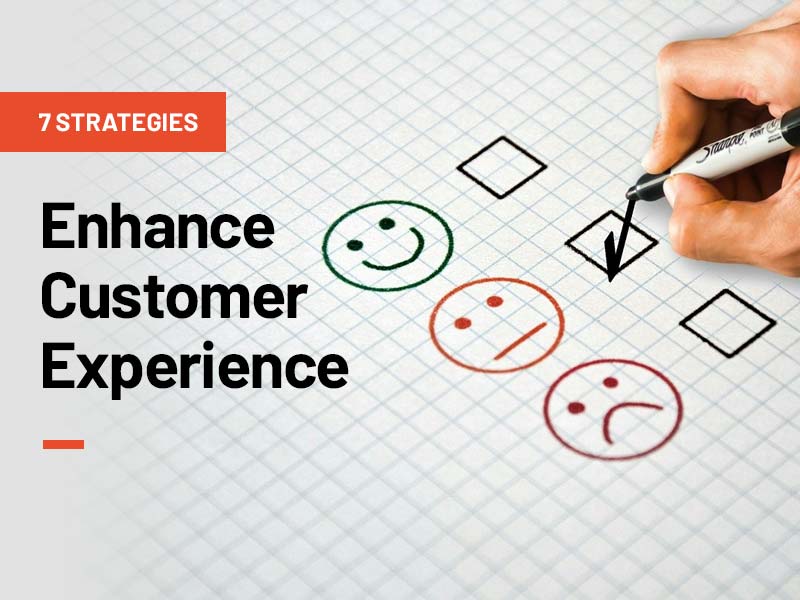As fierce the business environment is today, delivering exceptional customer experience is a critical differentiator. A satisfied and loyal customer base not only drives business growth but also serves as a brand advocate. To cultivate customer loyalty and stand out from the competition, businesses must prioritize enhancing the customer experience. In this article, we will explore seven powerful strategies that can help businesses elevate their customer experience and build lasting relationships. By embracing these strategies, businesses can create memorable interactions, foster customer loyalty, and drive sustainable growth.
1. Understand and Anticipate Customer Needs
The foundation of a remarkable customer experience lies in understanding and anticipating customer needs. By conducting thorough market research, collecting customer feedback, and analyzing customer data, businesses can gain deep insights into their target audience. This knowledge empowers businesses to personalize their offerings, tailor their messaging, and proactively address customer pain points. Anticipating customer needs allows businesses to provide proactive solutions and deliver an exceptional experience that exceeds expectations.
2. Provide Seamless Multichannel Support
In today’s digital era, customers expect seamless and consistent support across multiple channels. Whether it’s through phone, email, live chat, or social media, businesses must offer a unified and responsive support experience. Implementing robust customer relationship management (CRM) systems and integrating communication channels enables businesses to track customer interactions, resolve issues promptly, and maintain a holistic view of customer interactions. A seamless multichannel support approach demonstrates a commitment to customer satisfaction and builds trust. In addition, the incorporation of shipping software, like Acumatica ERP for example, can further enhance customer experience. Such solutions can manage and track the shipping and delivery aspects of customer orders, which fosters transparency between the business and its customers.
3. Implement a Customer Training LMS
Investing in a customer training learning management system (LMS) is a powerful strategy to enhance the customer experience. A customer training LMS allows businesses to provide comprehensive product or service training to customers, empowering them to fully utilize and derive value from their purchases. By offering self-paced online courses, interactive tutorials, and knowledge bases, businesses can empower customers to become proficient users. This not only enhances the customer experience but also reduces support inquiries and builds customer confidence.
4. Leverage Personalization and Customization
Customers appreciate personalized experiences that cater to their unique preferences and needs. By leveraging customer data and utilizing advanced analytics tools, businesses can create personalized interactions at every touchpoint. From personalized recommendations to targeted marketing campaigns, customizing the customer experience shows customers that they have valued individuals rather than just another transaction. Investing in customer data management and personalization technologies can yield significant returns in terms of customer satisfaction and loyalty.
5. Foster a Customer-Centric Culture
A customer-centric culture starts from within the organization and permeates every aspect of the business. By aligning all departments and employees around a common goal of delivering exceptional customer experiences, businesses can create a customer-centric mindset that becomes ingrained in the company’s DNA. This includes fostering a culture of empathy, actively listening to customer feedback, and empowering employees to go above and beyond to delight customers. By focusing on the customers, people are happier to provide feedback on their experiences, and collating this customer feedback into one compiled report can help to ascertain a business’s customer satisfaction score. Using such data can help to inform a business where it needs to improve for it’s customers, which then informs decisions the business makes about implementation of change. When employees prioritize the customer experience, it naturally translates into superior service and customer satisfaction.
6. Actively Seek and Act on Customer Feedback
Customer feedback is a valuable source of insights that can drive meaningful improvements in the customer experience. Implementing a robust feedback collection system, such as surveys, reviews, and social listening, enables businesses to gather actionable feedback from their customers. Actively listening to customer feedback, addressing concerns, and implementing necessary improvements demonstrates a commitment to continuously enhancing the customer experience. By leveraging customer feedback, businesses can identify areas for improvement and refine their strategies to better meet customer expectations.
7. Cultivate a Customer Community
Creating a customer community fosters a sense of belonging and loyalty among customers. By establishing online forums, social media groups, or customer-exclusive events, businesses can facilitate meaningful interactions among customers. Customers can share their experiences, exchange insights, and provide support to one another. A vibrant customer community not only enhances the overall customer experience but also serves as a powerful advocacy tool, as satisfied customers become brand ambassadors and refer new customers.
Final Word:
Enhancing the customer experience is a vital aspect of business success in today’s customer-driven landscape. By prioritizing customer satisfaction and loyalty, businesses can build strong relationships with their customers and create a competitive advantage that sets them apart in the market. Begin implementing these strategies today, and watch your business thrive through exceptional customer experiences.







